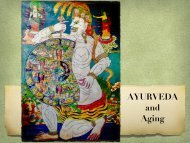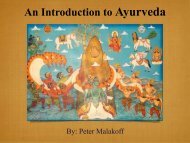A KORA OF KORAS
You also want an ePaper? Increase the reach of your titles
YUMPU automatically turns print PDFs into web optimized ePapers that Google loves.
Type to enter text
Because of their more primitive level of technology,20 ancient civilizations were
not as insulated from nature as we are in the 21st century and had more obvious
dependencies on elemental forces. In the ancient world and amongst low-tech
cultures today (like the Hopi), it was and is an undeniable fact that human life is
dependent on the sun and people expressed their gratitude in ritual and sacrifice
or what we have come to call . . . ‘religion.’ Whole cultures felt their obligation
for the sun’s overwhelming generosity, and gifting and rituals of sacrifice were
engaged to give back as much or even more than had been received. Sacrifice was
and is the principle at the heart of each and every religion; sacrifice stood at the
center of the ancient world and great temples were constructed that honored and
provided a place for such sacrifice to occur.
Today, rather than sacrifice, the principle of ‘accumulation’ and ‘control’
characterize our world view. Even what we refer to as ‘religious prayers’ are
performed primarily for getting something; but in ancient times sacrifice was
practiced to give something back to the giver. The articles of sacrifice used to be
animals, blood or money, but in the great religions of the Vedic culture,
Buddhism, Judaism, Christianity and Islam, the ancient principle of sacrifice was
re-defined by their great god-men. These beings clarified the meaning of what
sacrifice meant and in doing so gave rise to what has become the great religions of
today.

















